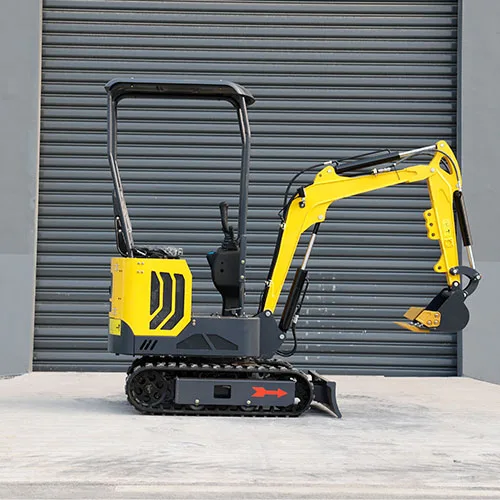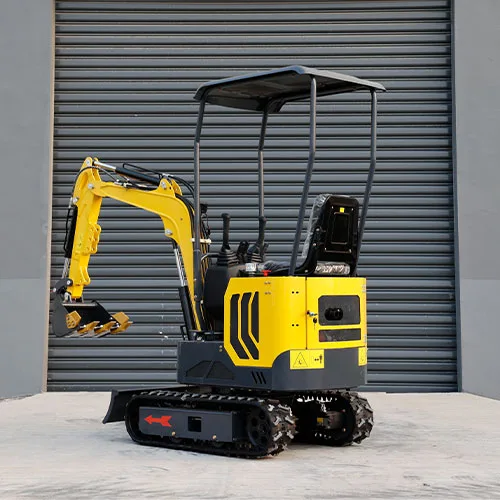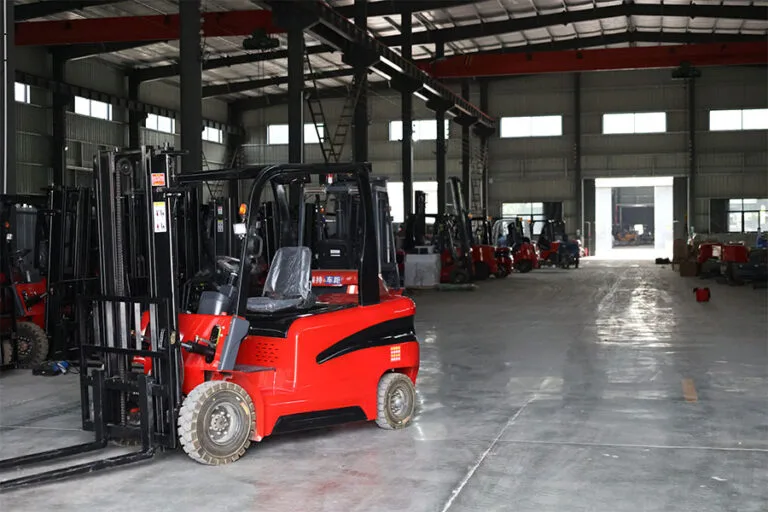Efficient Digging Starts with a Small Garden Excavator
I’m thrilled to have you here! Before we dive into the content, let’s stay connected. Join me on my social media platforms for more insights, community engagement, and regular updates. Here’s where you can find me:
📌 Facebook: Shandong Huaying International Trade Co., Ltd.
Now, let’s embark on this journey together. I hope you find the content here not only insightful and engaging but also valuable to your interests. Let’s learn, grow, and connect!
Table of Contents
Introduction

When it comes to heavy machinery, a construction excavator is one of the most versatile and essential pieces of equipment on any job site. Whether you are involved in building roads, digging foundations, or landscaping, choosing the right construction excavator can make a significant difference in productivity, safety, and cost-efficiency.
Buying a construction excavator, however, can be overwhelming due to the many options available in terms of size, power, attachments, and technology. This comprehensive guide will walk you through the top 6 construction excavator buying tips to help you make an informed decision that fits your project needs and budget.
Tip 1: Understand the Types and Sizes of Construction Excavators
Construction excavators come in a broad range of types and sizes, tailored to different job requirements and working environments. Choosing the right type and size is fundamental for project success and cost efficiency. Below are the main categories and their typical uses:
- Mini Excavators: These compact machines typically weigh between 1 to 6 tons and are perfect for projects in confined spaces or urban environments. Their small size allows for easy transportation and maneuverability, making them ideal for landscaping, utility work, small-scale demolition, and residential construction. Despite their size, modern mini excavators often come with impressive power and hydraulic capabilities that rival larger models in precision tasks.
- Standard Excavators: Usually ranging from 7 to 14 tons, standard excavators are the workhorses of the construction industry. They are highly versatile and capable of performing a variety of tasks such as trench digging, foundation work, and material handling. Their balanced size allows for efficient operation on most construction sites without excessive fuel consumption or transport challenges.
- Large Excavators: These heavy-duty machines, often exceeding 15 tons, are designed for large-scale earthmoving, mining, and heavy construction projects. Their increased digging depth, reach, and bucket capacity enable them to handle massive volumes of soil and rock. While large excavators offer superior power and productivity, they come with higher operating costs, including fuel consumption, maintenance, and transport requirements.
Why Size Matters:
When selecting a construction excavator, assess your specific job site conditions carefully. For example, a narrow urban site might only accommodate mini excavators, while a large open excavation requires a heavy-duty machine. Using an oversized excavator on a small site can increase operational costs unnecessarily, whereas an undersized machine may slow progress and increase labor costs.
Additionally, consider factors such as terrain type, soil conditions, and typical material handled. These will affect your excavator’s performance and durability. Investing time upfront in matching the excavator’s size to your project needs can save significant time and money throughout the construction cycle.
Tip 2: Evaluate Engine Power and Performance Specifications of Construction Excavators
The engine power of a construction excavator is a critical determinant of its performance and suitability for your tasks. However, engine power is just one part of a larger performance picture. Here’s what you should focus on:
- Horsepower (HP): This reflects the engine’s capacity to deliver power to hydraulic systems and drive components. Higher horsepower means the excavator can perform tougher digging operations, lift heavier loads, and maintain efficiency on difficult terrain. For heavy-duty projects, higher horsepower models (often above 150 HP) are preferable. For light-to-medium tasks, lower horsepower machines (below 100 HP) are more fuel-efficient and cost-effective.
- Operating Weight: This includes the excavator’s weight plus attachments and fuel. Heavier machines provide better stability and digging force but may require stronger transport and supporting infrastructure.
- Digging Depth and Reach: These specs tell you how deep and far the excavator’s arm can extend, which is crucial for projects involving deep trenches or large material handling zones.
- Hydraulic Flow Rate and Pressure: Hydraulic power drives the arm, bucket, and attachments. Machines with higher flow rates and pressure offer faster cycle times and can power more demanding attachments such as breakers or grapples.
Balancing Power and Efficiency:
While a powerful engine improves performance, it often increases fuel consumption, which can escalate your operational costs. Opt for a construction excavator that balances horsepower with fuel efficiency. Many manufacturers now offer eco-mode or intelligent engine control systems that adjust power output based on the workload, reducing unnecessary fuel use without sacrificing productivity.
Additional Performance Factors:
- Consider technology features such as automated digging assistance or GPS integration that enhance precision and reduce operator fatigue
- Check for advanced hydraulic systems that improve response times and smoothness.
Tip 3: Consider Attachments and Versatility When Buying a Construction Excavator


The versatility of a construction excavator is greatly enhanced by its ability to use a wide range of attachments. This flexibility allows one machine to perform multiple tasks, making it a cost-effective choice for contractors with diverse job demands. When evaluating excavators, consider the following common attachments and their benefits:
- Buckets: The most basic and frequently used attachments, buckets come in many types:
- Standard buckets for general digging.
- Trenching buckets with narrow profiles designed for precise, deep trenching.
- Ditch cleaning buckets for grading and leveling surfaces.
- Hydraulic Breakers: Ideal for demolition and breaking hard materials such as concrete or rock. Hydraulic breakers can turn an excavator into a powerful demolition tool.
- Grapples: These are used to pick up and move irregular or bulky materials like logs, scrap metal, or demolition debris. They improve material handling efficiency on site.
- Augers: Perfect for drilling holes for posts, poles, or planting trees. Augers allow the excavator to perform tasks that would otherwise require separate drilling machines.
- Thumbs: Hydraulic or mechanical thumbs work like an extra finger, helping grasp materials securely when combined with buckets or grapples.
Choosing the Right Attachments:
When selecting a construction excavator, verify which attachments the machine supports and how easy it is to switch between them. Quick couplers significantly reduce downtime during attachment changes, increasing job site productivity.
Furthermore, evaluate the hydraulic system capacity to ensure it can operate your desired attachments efficiently. Some attachments require high hydraulic flow or pressure, so confirm compatibility with the excavator model.
Maximizing Investment:
An excavator compatible with multiple attachments can be your all-in-one solution on the job site. Instead of purchasing separate machines, you can perform excavation, demolition, drilling, and material handling with one versatile unit, reducing equipment fleet size and lowering overall costs.
Tip 4: Analyze Maintenance, Durability, and Warranty of Construction Excavators
Maintenance costs and machine durability are critical factors influencing the long-term value of a construction excavator. Before purchasing:
- Check the warranty terms
- Assess availability of spare parts
- Review the ease of routine maintenance
- Consider the brand reputation and customer service
Reliable machines with solid warranty and support will save you downtime and repair expenses in the long run.
Tip 5: Compare Pricing and Financing Options for Construction Excavator Purchases
Budget constraints often play a decisive role in selecting a construction excavator. When evaluating prices:
- Compare new vs. used machines
- Factor in operational costs (fuel, maintenance)
- Explore leasing or financing options
- Consider total cost of ownership, not just upfront cost
Below is a table summarizing typical costs and features for different types of construction excavators to guide your budgeting process.
| Excavator Type | Operating Weight (tons) | Engine Power (HP) | Common Uses |
|---|---|---|---|
| Mini Excavator | 1 – 6 | 15 – 75 | Small jobs, landscaping, urban |
| Standard Excavator | 7 – 14 | 80 – 150 | Medium jobs, construction sites |
| Large Excavator | 15+ | 200+ | Heavy-duty, mining, large projects |
Conclusion
Selecting the right construction excavator requires careful consideration of job requirements, machine specifications, attachments, maintenance, and budget. By following these top 6 construction excavator buying tips, you can confidently choose a machine that enhances your productivity and delivers a solid return on investment.
Remember, the best construction excavator is one that perfectly matches your project needs and operational goals. Take your time to research, compare options, and consult experts before making your final decision.
FAQ
What size construction excavator should I buy for small projects?
For small projects or urban environments with limited space, mini excavators (1-6 tons) are the best option. They offer maneuverability and lower operational costs while performing various tasks efficiently.
How important is engine power in construction excavators?
Engine power affects the machine’s ability to handle tough materials and heavy lifting. Ensure the excavator has adequate horsepower for your project needs but also consider fuel efficiency.
Can I use a construction excavator for multiple tasks?
Yes, construction excavators are highly versatile due to various compatible attachments. Choosing a model that supports multiple attachments can expand your machine’s functionality.
Should I buy a new or used construction excavator?
Both options have pros and cons. New machines come with warranties and latest features but cost more upfront. Used excavators can be budget-friendly but require careful inspection and may have higher maintenance needs.
What maintenance is required for construction excavators?
Routine maintenance includes checking hydraulic fluids, engine oil, filters, and undercarriage condition. Regular servicing as per manufacturer guidelines will ensure longevity and reliable performance.



